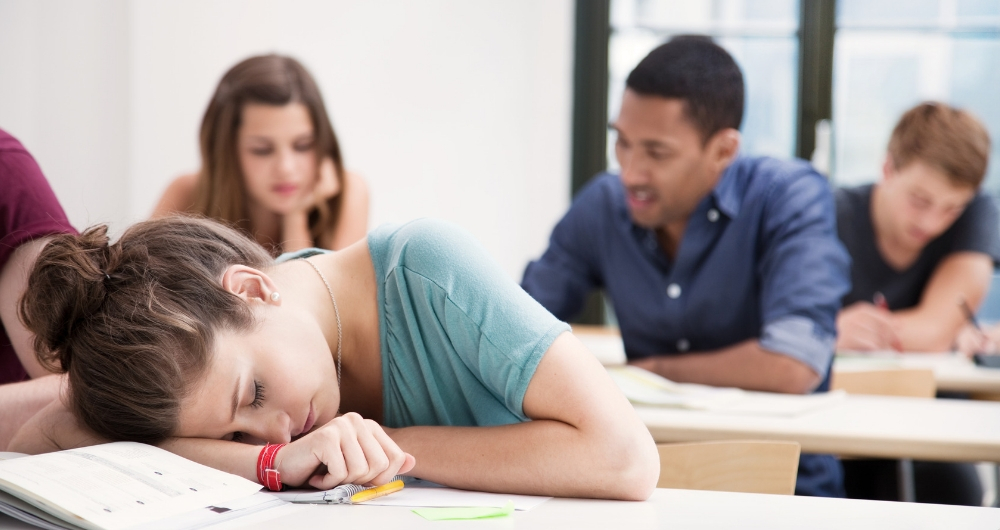
By Sarah Stender, MD Director of the UCSF Fresno Division of Adolescent Medicine
Originally published in CUSD TodayNational Institutes of Health sponsored studies show that teens need nine to 10 hours of sleep a night. Yet, many are failing to get the sleep they require for optimal health and the sleep needed to succeed academically.
The good news is, there are steps parents can take to help teens develop good sleep habits, also known as sleep hygiene.
Why is sleep so important? Sleep problems are associated with numerous health issues, including depression, obesity and a host of others. Lack of sleep also is linked to poor school performance. Establishing good sleep hygiene is just as important for teenage students as it is for younger ones.
Between rigorous academic demands and an abundance of extracurricular activities, teens are pulled in many directions. Adding to the demands on their time, teens spend about nine hours a day engaged in media use, including having cell phones and tablets in bed with them – many texting with friends throughout the night. Blue light from screens interferes with the secretion of melatonin (a pineal hormone important to circadian rhythm).
During sleep, the cells repair and regenerate. Also, the pulsatile secretion of Growth Hormone is most pronounced, especially during the adolescent's pubertal growth spurt. Growing both in actual stature as well as in character and purpose are occurring during this critical transition of life, a time no less dramatic than the changes that occur from birth to age one.
A study published September 2017 in “Pediatrics” involving 4,525 youth shows an absolute association between amount of sleep and body mass index, indicating that lack of sleep is contributing to the obesity epidemic. Insulin resistance is increased without adequate sleep, resulting in carbohydrate craving. Thus, both obesity and at least one serious co-morbid condition, type 2 diabetes, are associated with poor sleep.
Depression is increased in those who do not get sleep. A lack of sleep lowers serotonin levels, important for mood regulation. Those who are sleep-deprived are often irritable, anxious, and depressed leading to gloomy and distorted thoughts with magnification of problems.
The consolidation of long-term memory is dependent upon an adequate amount of sleep. Cramming for exams the night before may help with a few answers for the test. However, with regard to retention of these facts as well as cognitive ability and the application of critical thinking skills, there is marked decrease in function.
Many teens have delayed sleep phase syndrome, characterized by going to bed late and sleeping much of the next day resulting in disrupted circadian rhythms. Attempts to sleep in on the weekend aren’t enough. About 50 percent of these students suffer from depression.
For improved sleep hygiene in teens and most people, in general, follow these doctor recommendations:
- Set a designated sleep time and stick to it as best as possible, allowing for at least nine hours of sleep to assure all phases of uninterrupted sleep.
- Remove all electronic devices from the room. This includes phones, tablets and televisions. (Click here to view the American Academy of Pediatrics family mobile use plan for help with establishing guidelines).
- Use the bedroom only for sleeping and dressing and use the bed only for sleep. Do not read or eat in bed. Do school work at a desk or table, sitting upright with good posture to avoid neck strain.
- Keep the bedroom completely dark. If there are streetlights, consider using blackout shades or an eye mask designed to block out all light.
- Avoid caffeinated products in the afternoon and evening such as soda, teas, coffee and chocolate. Be sure to read labels. The best hydration is water.
- Empty the bladder just before going to bed and avoid drinking a lot of water at bedtime.
- Avoid products that contain alcohol like some cold medicines. While they may induce drowsiness initially, the effect will not last through the night.
- Unwind and let go of anger and anxiety. Try to be at peace at bedtime.
Following these tips should help. If sleep problems such as snoring or excessive daytime sleepiness persist, consult with a physician to see whether a sleep study may be necessary to rule out other problems.
Sweet dreams.
References:
1. Millman RP, and Working Group on Sleepiness in Adolescents/Young Adults and AAP Committee on Adolescence. Technical Report: Excessive Sleepiness in Adolescents and Young Adults: Causes, Consequences, and Treatment Strategies. Pediatrics. 2005;115:1774-1786.
2. Glaser N, Styne D. Weighing the Causal Evidence That Associates Short Sleep Duration With Obesity.Pediatrics 2017,e 20172015.
3. Rudnicka AR, Nightingale CM, Donin AS, Sattar N, Cook DG, Wincupp PH, Owen CG. Sleep Duration and Risk of Type 2 Diabetes. Pediatrics



